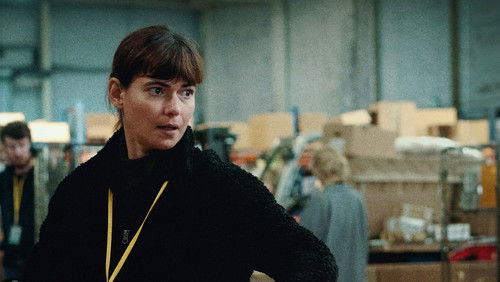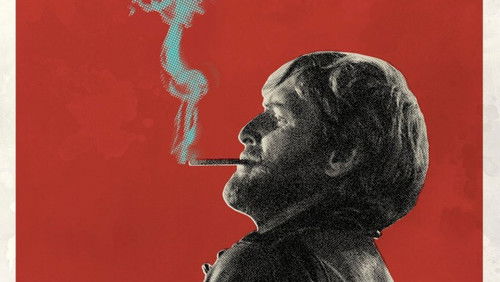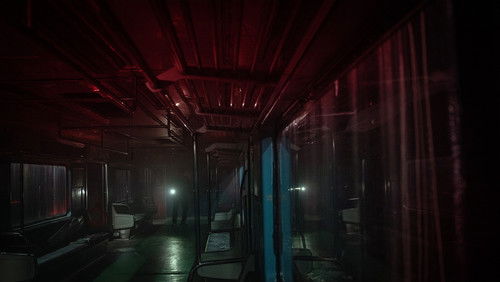Maigret und der Fall Picpus (1943)
14KMaigret und der Fall Picpus: Directed by Richard Pottier. With Albert Préjean, Juliette Faber, Jean Tissier, André Gabriello. Picpus is a street and a subway stop where a number of murders have been committed, Maigret tries to find the killer.
“Inspector Maigret (Albert Préjean) is unwittingly dragged away from his long-deserved holiday to solve a baffling case of a corpse found in a wardrobe during a move. His bullish colleague Amadieu (Henri Vilbert) is certain that the workers who transported the wardrobe are the killers but Maigret is unconvinced especially as corpses begin to pile up. Who is this mysterious killer who sends the police anonymous letters signed only Picpus?u003cbr/u003eu003cbr/u003eAlbert Préjean stars as Maigret in this wartime Continental Films take on the famous Georges Simenon character. He is a terrific leading man, cool, charming, witty, and stoic, displaying all the qualities that made such Hollywood actors as Humphrey Bogart, Gary Cooper and William Holden stars. Of course, his portrayal of the commissaire is about as far from the heavy-set, taciturn man described by Simenon as possible, but it works within the confines of this film.u003cbr/u003eu003cbr/u003eIndeed, the whole movie seems to owe more to American noir than anything written by Simenon. Thereu0026#39;s little trace of the sombre atmosphere and the psychological analyses that are the chief characteristics of the Maigret novels. Instead, u0026quot;Picpusu0026quot;, as directed by Richard Pottier, fills its runtime with numerous twists, pretty girls, and even a climactic fight scene which impressed me with its realistic and brutal nature. Maigret develops a fondness for the sexy private detective by the name of Berthe (Juliette Faber) but is she truly an ally or is she a femme fatale. No prizes for those who guess correctly.u003cbr/u003eu003cbr/u003eThe novel is adapted for the screen by Jean-Paul Le Chanois and the screenplayu0026#39;s a mess. To be honest, Iu0026#39;m not a fan of the original novel, translated as u0026quot;To Any Lengthsu0026quot; either, with its preposterous plot and cartoonish characters, but Le Chanoisu0026#39; adaptation takes all those flaws and enhances them by adding a whole host of needless characters, blind allies, and red herrings. By the end, he has tied himself up in so many knots, that he doesnu0026#39;t even bother to explain everything forgetting several major subplots along the way. The body count balloons from two to seven, and the final explanation doesnu0026#39;t make much sense seeing how it relies on a series of highly improbable coincidences.u003cbr/u003eu003cbr/u003eBut, for all the shortcomings of the plot, u0026quot;Picpusu0026quot; actually works as a fairly entertaining and well-made thriller. This is mostly down to its solid cast, led by the highly likeable Préjean, and reliable direction from Richard Pottier. He does a great job of mimicking Hollywood thrillers with their noirish atmosphere and off-beat cinematography inspired by German expressionism. There are several great scenes set in front of an enormous map of Paris equipped with lightbulbs that shine whenever a crime is reported on a certain street. I was also impressed by Pottieru0026#39;s brief but imaginative use of split-screen in the scene in which Maigret first learns of the crime.u003cbr/u003eu003cbr/u003eEven Le Chanoisu0026#39; script, when it isnu0026#39;t too busy trying to untangle its Gordian plot, delivers several memorable scenes. As a fan of the Maigret novels, I enjoyed how it picks apart the commissaireu0026#39;s unusual methods and brings them into conflict with his colleaguesu0026#39; standard operating procedure. u0026quot;Maigretu0026#39;s methods may be fanciful, but they work,u0026quot; says his boss (Antoine Balpêtré) only to later revert his opinion. u0026quot;Intuition has never brought us anywhereu0026quot;. In a rare moment of poetic introspection, Maigret describes his intuition as his geometry in which u0026quot;the triangles and circles are alive. They have hearts and heads. Must be understood. The shortest way from one point to another isnu0026#39;t always a straight line.u0026quot;u003cbr/u003eu003cbr/u003eThereu0026#39;s plenty of humour in u0026quot;Picpusu0026quot; as well, mostly in the form of Maigretu0026#39;s bumbling, overweight assistant Lucas (André Gabriello). Heu0026#39;s no oneu0026#39;s idea of refined comedy, but heu0026#39;s also not as grating as most comic relief characters are. Heu0026#39;s no Stepin Fetchit, thatu0026#39;s for sure. I enjoyed the subtler comedic moments more, for sure, like the third-act sequence in which Maigret goes looking for a suspect at a Native American-themed dinner, or the running gag about slippery parquette. The comedy in u0026quot;Picpusu0026quot; is not its greatest strength but it also isnu0026#39;t obnoxious or distracting the way it is in some thrillers from the same period.u003cbr/u003eu003cbr/u003eIn conclusion, u0026quot;Picpusu0026quot; is very far removed from Simenonu0026#39;s creation but as a French take on film noir, it is a decent, entertaining effort. I especially enjoyed Préjeanu0026#39;s performance and the moody cinematography. It isnu0026#39;t the kind of film to satisfy your need for psychological thrillers and profound characterisation, but it will scratch that rainy-day itch quite nicely.”









